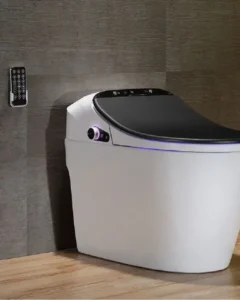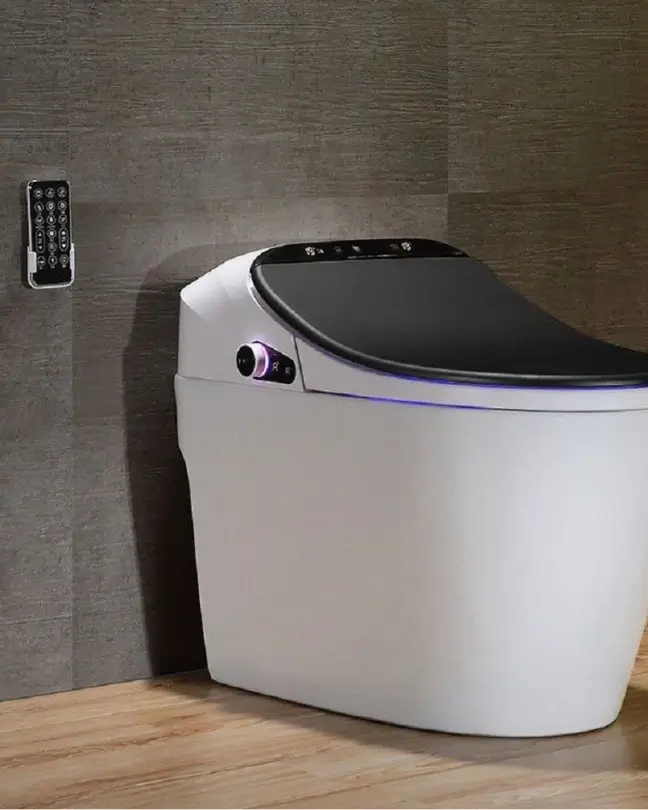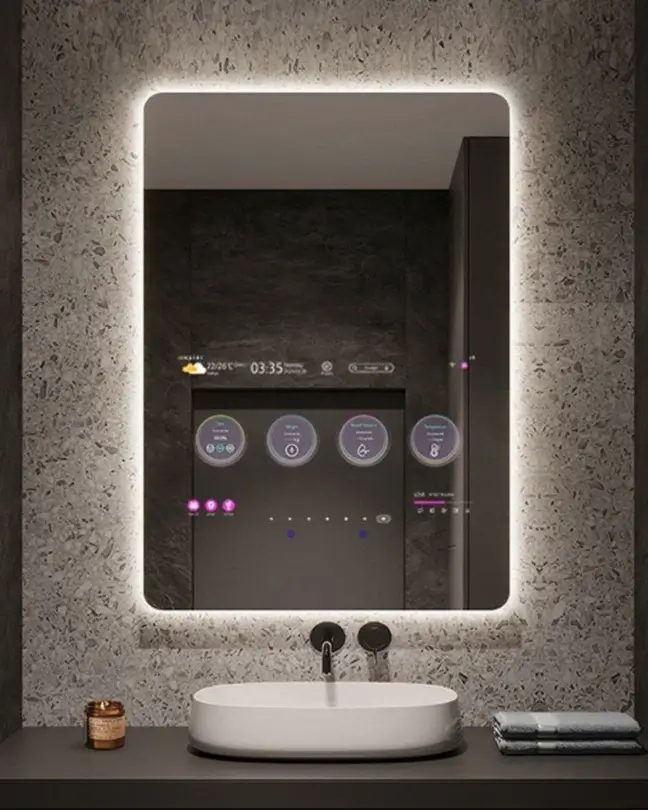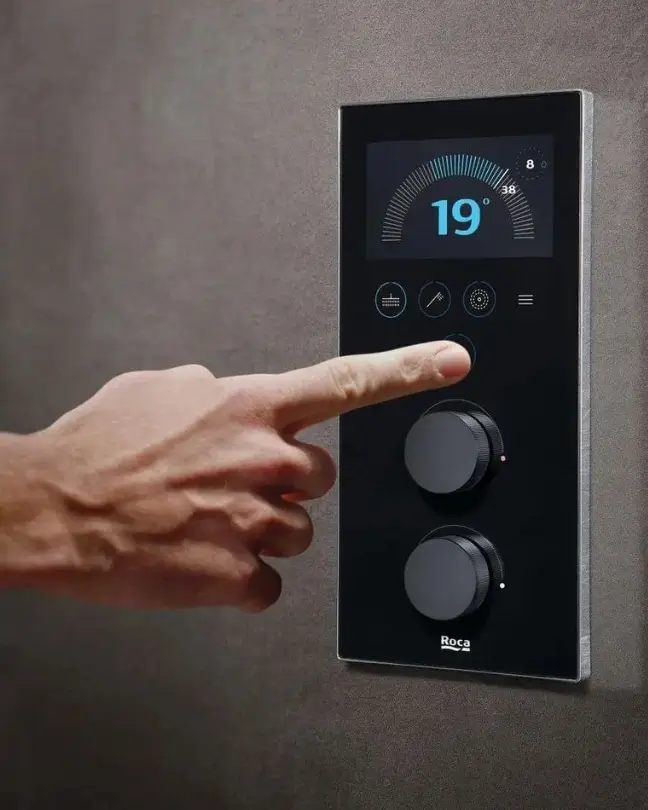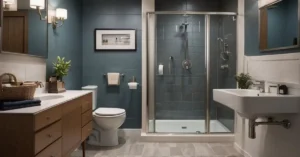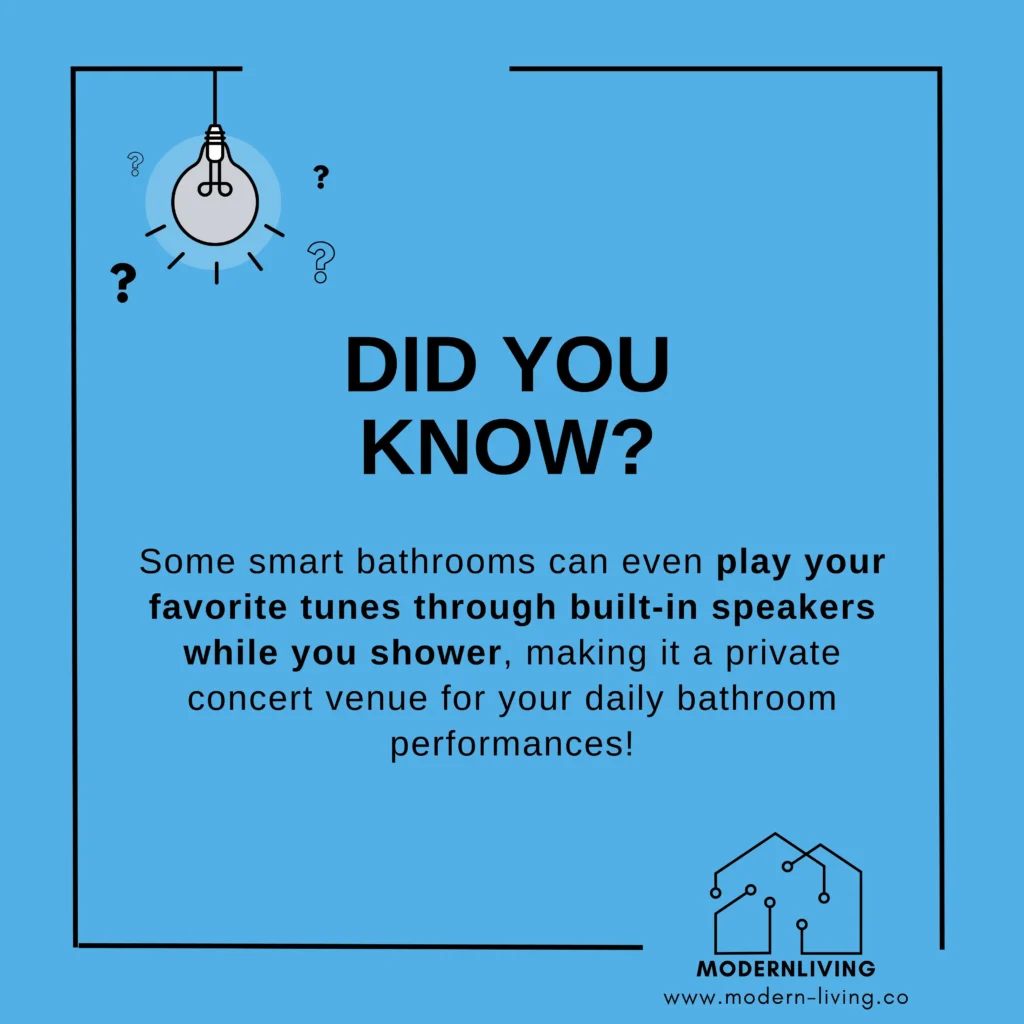
Picture stepping into a bathroom where all you need is just a flick of a switch or a simple voice command. Smart bathroom technology has advanced beyond our wildest dreams, making your mornings more efficient and your self-care routines more enjoyable. Whether it’s upgrading your morning routine with personalized lighting, conserving water with intelligent faucets, or maintaining the perfect shower temperature, these ideas will not only pamper you but also enhance your daily convenience.
Smart Bathroom Ideas
Interactive LED-Mirrors
A smart mirror features an integrated screen that displays time, traffic updates, weather forecasts, news, reminders, and appointments. You can use it to ask questions and manage other smart home devices.
Smart Showers
A smart shower enables you to control water temperature, flow, duration, and more through a preferred smart device. Key advantages of smart showers include maintaining consistent temperature, enhanced safety, remote control, and water and energy conservation.
Floor Heating Systems
Radiant floor heating systems use thermal radiation to provide consistent warmth throughout your space, especially your feet during winter. You can control the temperature with your mobile phone while you are on the move so that you always have a warm bathroom.
Smart Faucets
Smart faucets use temperature sensors and efficiency controls to manage water usage in your bathroom. They can preheat or cool water to your preferred temperature before you turn on the faucet, which saves water, improves efficiency, and reduces costs. The touchless function also contributes to hygiene by minimizing germ transmission while washing hands.
Intelligent Toilets
They come packed with an array of features to enhance comfort and hygiene. Among the favorites are heated seats, touchless automatic lids, night lights, and even built-in speakers for soothing tunes or ambient sounds. Some smart toilets also incorporate bidet functions, reducing the need for toilet paper and leaving you feeling fresher.
Smart Washer and Dryer
You can initiate and halt laundry cycles or select and modify settings straight from your smartphone. Plus, you’ll receive push notifications when a cycle is finished or if the machine requires maintenance or repair.
Benefits of Smart Bathroom Technology
Energy Efficiency
Smart technology can help you save money on your utility bills by reducing water and energy waste. For example, smart toilets can automatically adjust the amount of water they use for each flush based on how much waste is in the bowl. Smart showerheads can also help you save water by automatically turning off when you’re not using them.
Improved Hygiene
Smart toilets can automatically clean themselves after each use, reducing the spread of germs and bacteria. Smart faucets can also help you avoid touching dirty handles by automatically turning on and off when you wave your hand in front of them. Plus, smart mirrors can even detect your skin’s moisture levels and recommend the best skincare products for you.
Convenience
Imagine being able to control your shower temperature and water pressure with your voice or smartphone. Or being able to adjust your bathroom lighting to match your mood. Smart technology can also help you keep track of your bathroom supplies, like toilet paper and soap, and automatically reorder them when you’re running low.
Comfort
Smart toilets can come with heated seats and built-in bidets, while smart showers can offer customizable water settings and even aromatherapy options. And with smart mirrors, you can even listen to music or catch up on the news while you get ready in the morning.
Future of Smart Bathrooms
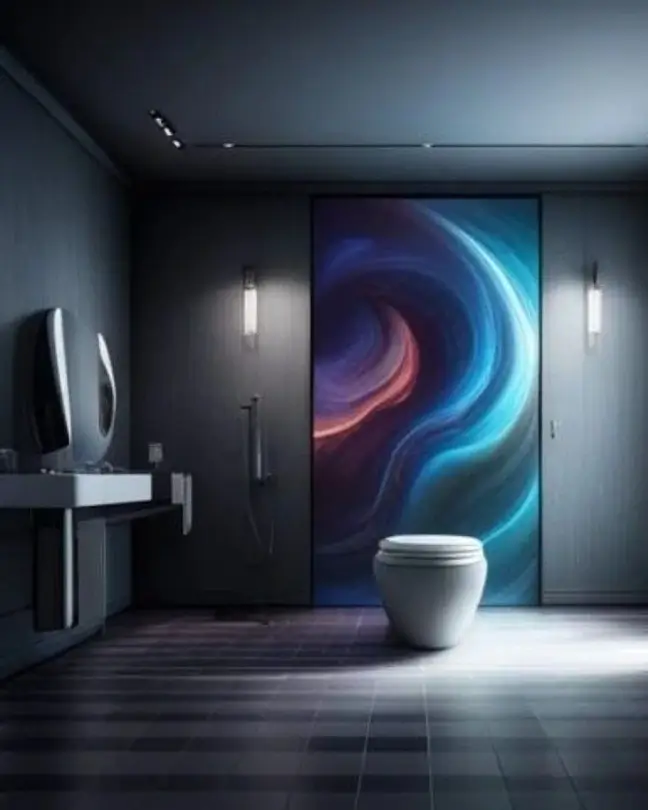
With the rise of connected devices and the Internet of Things (IoT), we’re seeing a new generation of bathroom technology that promises to make our lives easier, healthier, and more enjoyable.
So what does the future of smart bathrooms look like? Here are a few trends that I’m particularly excited about:
Personalized experiences
One of the most promising aspects of smart bathroom technology is the ability to personalize our experiences. Imagine a bathroom that knows your preferences for water temperature, lighting, and music, and adjusts everything automatically as soon as you walk in. Or a smart mirror that analyzes your skin and recommends the best products for your needs. With the power of artificial intelligence and machine learning, we’re just scratching the surface of what’s possible.
Health and wellness
Another area where smart bathroom ideas are making a big impact is in health and wellness. From chromotherapy shower systems to smart scales that measure body composition, there are a host of devices that can help us stay healthy and feel better. And as we learn more about the connections between our physical and mental health, I expect to see even more innovations in this space.
Energy efficiency
Finally, smart bathroom technology can also help us save energy and reduce our environmental impact. From low-flow toilets and faucets to smart water heaters that only heat water when you need it, there are many ways to make our bathrooms more efficient. And as we become more aware of the importance of sustainability, I expect to see even more emphasis on these kinds of features.
Would you like to know more about this topic?
Watch this video to learn about the coolest smart bathroom accessories!
FAQ
What does a smart bathroom have?
A smart bathroom has various technology-enabled devices that provide convenience, comfort, and efficiency. These include smart toilets with features like seat warmers, touch-free automatic lids, night lights, and speakers, high-tech or smart showers with user-friendly controls, and mirrors with built-in displays. There are also smart scales, faucets, and lighting systems that can be controlled remotely.
What are the disadvantages of smart toilets?
Some potential disadvantages of smart toilets include high cost, potential privacy concerns, and reliance on technology that could malfunction. Additionally, smart toilets may not be accessible to people with disabilities or those who prefer traditional toilets. Finally, some users may find the data collection and analysis capabilities of smart toilets intrusive or unnecessary.
Do smart toilets use a lot of electricity?
Smart toilets use a small amount of electricity, typically less than 1 kilowatt-hour per day. However, this varies depending on the features and frequency of use. While smart toilets may use more energy than traditional toilets, their water-saving capabilities may offset this.
If you liked this blog article about the topic: Smart bathroom ideas, don’t forget to leave us a comment down below to tell us about your experience.
Feel free to also check out our Articles from the category “All about smarthome“

